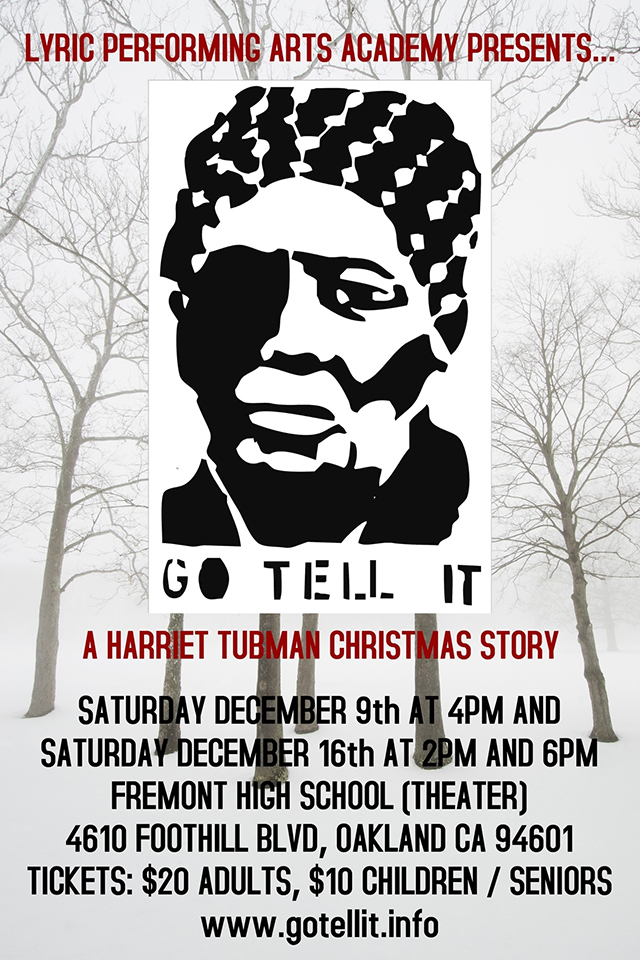by Wanda Sabir
Happy birthday to all the Sagittarians and Capricorns, especially East St. Louis, Ill., Poet Laurate Eugene Redmond, poet, activist, scholar and historian, who is 80 Dec. 1. Happy birthday also to Lorraine Hansberry Theatre former Artistic Director Steven Anthony Jones, Shawn Lyles, Bilal Sabir, Zarinah Shakir, Ann Marie Davis, Iya Halifu Oṣumare, Orlonda Uffre and C. Kelly Wright.
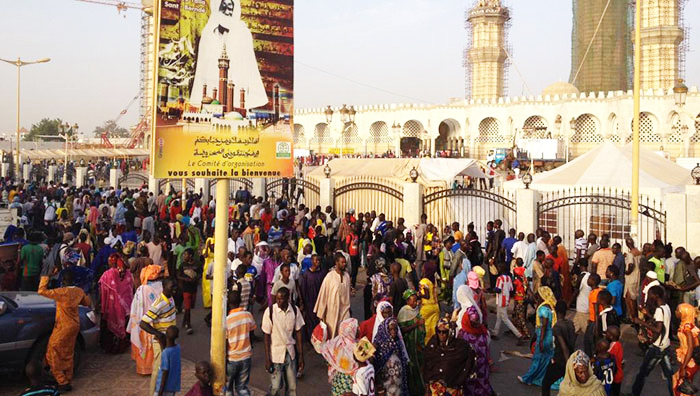
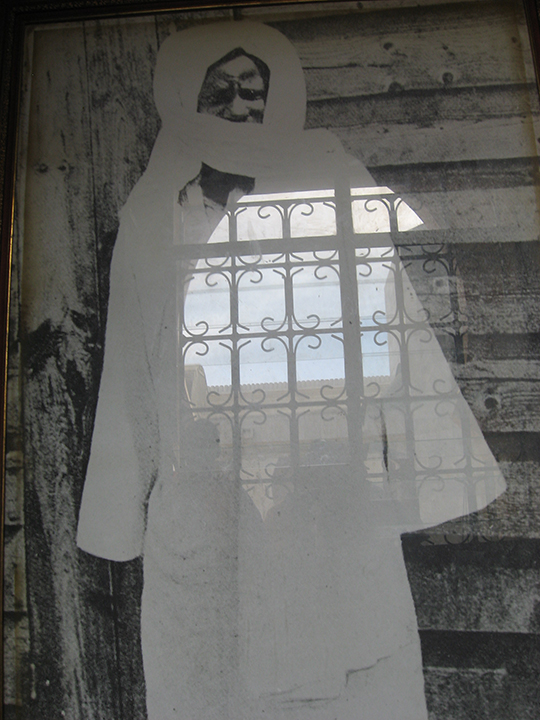
Is it resolution time again so soon (smile)? This coming year I plan to listen to more live music and dance more. I was inspired by Diamano Coura’s 42nd Repertory Performance “Sama Diabar” (“My Wife”) Nov. 25. This year the company featured three women choreographers – Nikka Maynard, Danielle Delane and LaTashia Bell – who grew up in the company and a fourth choreographer, Phillip Amo Agyapong. The choreographers, who also danced, were phenomenal.
Combined with the colorful costumes, great scenic design, not to mention the excellent drumming led by Papa Zak, one could not help but be inspired to get up and dance too. The Malonga Casquelourd Theater was full for the evening show. If there had been a Sunday matinee, I would have returned to see it again. What I enjoyed this time was the talk with the artists during intermission.
The story, “Sama Diabar” (“My Wife”), was one of youth following their traditions and not allowing Western mores to make them forget what is valued most in their culture: family relationships, respect for women and marriage. After being scolded for wasting their time at the club, an elder sends the young men to Touba City to find the wise man who can help them find wives.
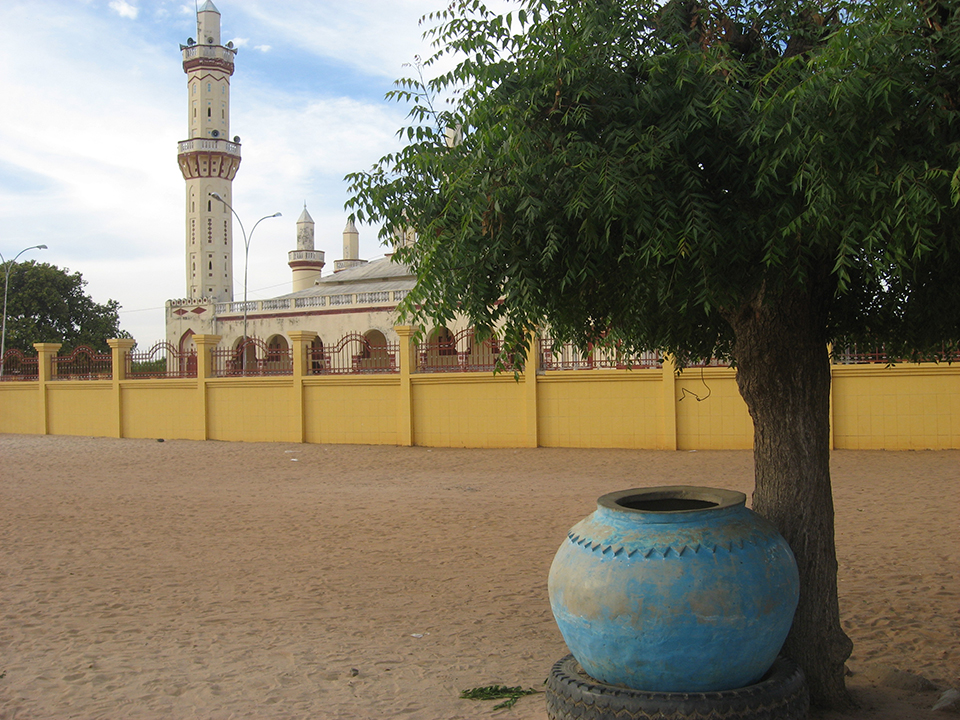
Touba is the city where the heroic leader Cheikh Amadou Bamba (1853-1927) peacefully resisted the French government and was forcibly exiled from his country (Senegal) for 11 years. Eventually he was freed, but the leader of the Mourides (a Sufi order he founded in 1883) continued to resist French imperialism. Touba is his city, where there is a yearly pilgrimage and men live simply so that they can serve the poor. These men wear patchwork garments. The mosque dedicated to Cheikh Amadou Bamba is made from marble, but the old mosque and village was what we saw on stage. It is here that the four youth received needed guidance and were able to find wives.
Kwanzaa
Those of us in the San Francisco Bay Area reflect on the legacy and work that illustrated the life of Queen Mother Makinya Kouate. After Maulana Karenga gave the students from Merritt College a mimeographed sheet with notes about a harvest festival called Kwanzaa, the Oakland-Berkeley team started hosting community Kwanzaas in their homes. Later Sister Makinya would travel to Africa and learn more about harvest festivals; however, without her work the plan might have remained nothing more than a great idea. Now the community celebration of First Fruits and the Nguzo Saba has a yearly stamp sponsored by the U.S. Postal Service. Kwanzaa kits made in China have been around for a number of years. I remember when I saw this item at Sears in Oakland.
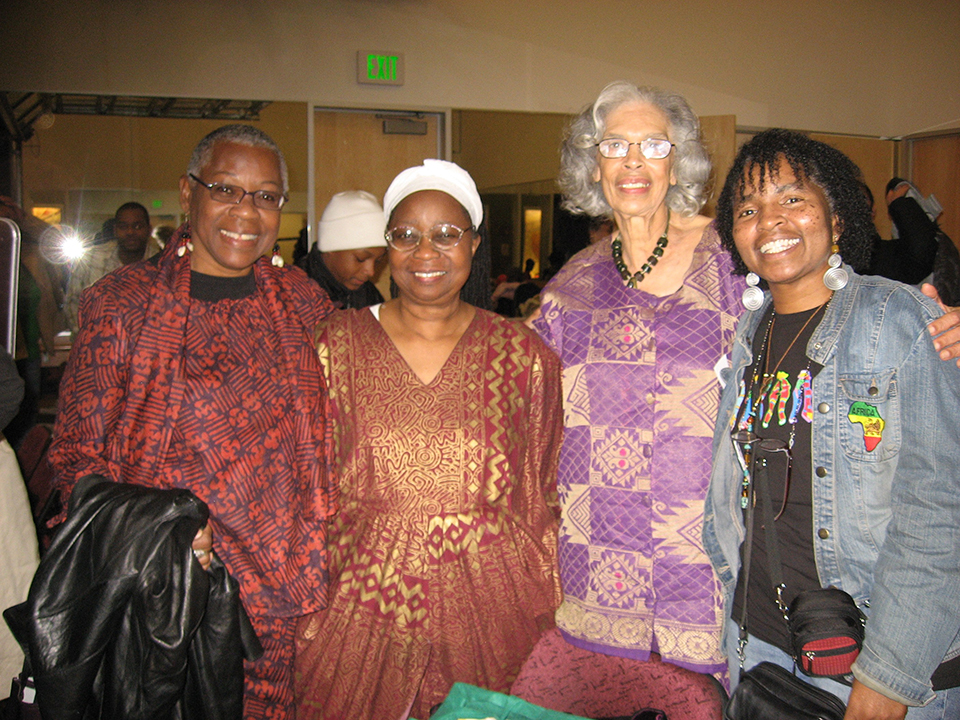
However, Sister Makinya was a purist: Only Black people were invited, the venue should be owned by a Black person so the money stays in the community, and we make the gifts or buy from a Black vendor. This is practicing Umoja, Kujichagulia, Ujima and Ujamaa: Unity, Self-Determination, Collective Work and Responsibility and Cooperative Economics.
Last year for the 50th anniversary of the celebration, Dec. 26-Jan. 1, Sister Makinya was at a convalescent hospital, so we took Kwanzaa to her. It was wonderful watching her receive her friends and others who attended because they appreciated her service to our community. To celebrate Kwanzaa is to honor Sister Makinya’s legacy. The Village Project and the Bayview Y are hosting its 12th annual citywide series of events. Visit http://thevillageprojectsf.org/vp/?page_id=97.
Kwanzaa at the state capitol encourages growth of Black agriculture
The 19th Annual 2017 California State Capitol Kwanzaa Celebration will be held Dec. 30, 12-2 p.m. in John Burton Hearing Room 4203. California political and community leaders are poised to embrace Kwanzaa, a “California Grown” internationally celebrated holiday, as part of a new paradigm working toward quantifying and qualifying racial equity and equal opportunity throughout the California food and agriculture industries. Today, Black agricultural production is less than 1 percent of California food and agriculture production. See https://www.indybay.org/newsitems/2017/11/22/18804749.php.
Kwanzaa at West Bay Conference Center
Starting with a kick-off at high noon on the Dec. 26 and culminating in an evening celebration on Jan. 1, the seven days of Kwanzaa are full of song, feasting and candles! Kids will love to swing and sing to the rhythm and blues bands, reggae, gospel music and more. There are multiple events each day. The celebration starts at noon at MoAD on Dec. 26. The rest of the days, the events take place at different venues. See http://redtri.com/san-francisco/kwanzaa-san-francisco/.
Della Reese and Dr. Intisar Shareef join the ancestors

We remember Della Reese (born Delloreese Patricia Early on July 6, 1931), “the Angel,” made her transition Nov. 19, 2017. Dr. Intisar Shareef (Oct. 29, 1946 -Nov. 4, 2017), early childhood educator, foster parent and kinship care program at Contra Costa College, trustee of Pikler/Lóczy USA, Philadelphia MGT-GCC (Muslim Girls Training and General Civilization Class) captain, mother, grandmother, wife, activist, humanitarian.
Following my professor, Ms. Chizu Iiyama, as chair of the Early Childhood Department at Contra Costa College (CCC), Intisar did for Contra Costa County – Richmond, San Pablo etc. – what she and Dr. Mante did for Peralta Community College District Early Childhood Education (ECE) Centers when they introduced Montessori into these classrooms and later into Oakland Public Schools ECE programs. Our friend, former Black Panther Party member Dhameera Ahmad (Jan. 11, 1950-July 24, 2017) was also one of these mavericks for quality ECE for “the People.”
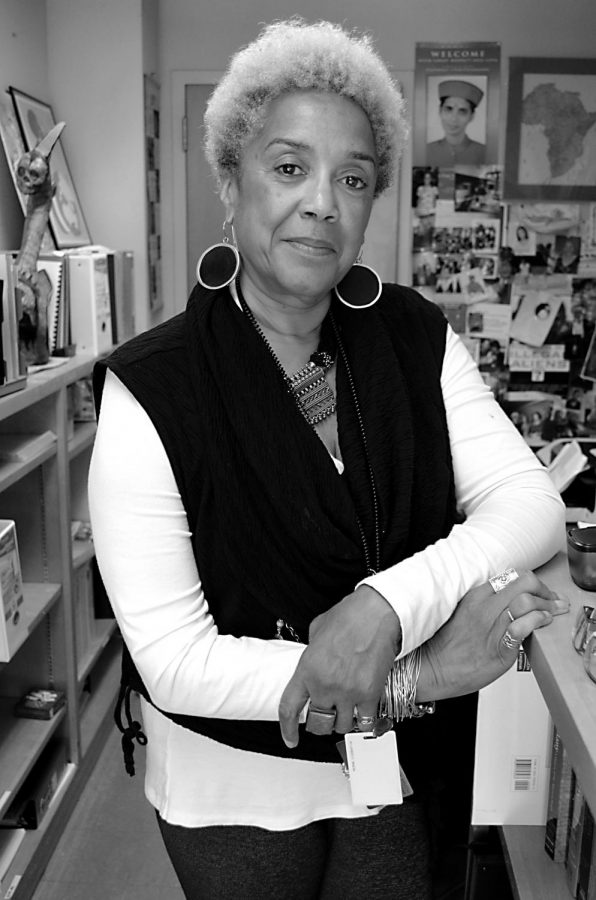
Sister Intisar was a cool scholar. I remember seeing her at CCC in her office, which she later shared with me until I got an office of my own. Statuesque and beautiful, she reared her son, Tauheed, in French bilingual school, boarding schools. She believed in international citizenship and traveled the world as a consultant as well as a scholar to find the most natural way to cultivate young minds.
When she took over the department at CCC she brought in Black women, older Black women into higher education as leaders. There these older mothers met young mothers and through the many programs Intisar initiated, a synergy developed between the two groups and of course the babies thrived. When I was a preschool teacher at Head Start in Richmond, Berkeley-Richmond Jewish Community Center and Berkeley Public Schools, I would look to Dr. Shareef for guidance.
She said: “In our increasingly diverse society, we all need to be able to create authentic, healthy, equitable relationships with people unlike ourselves, whether our colleagues, coworkers, fellow students, or families of young children. I always want people to be heard thoroughly, without interruption. If you can hear someone regardless of their story, that’s a doorway into understanding your own humanity. I want to set judgments aside and let people and their thoughts progress naturally. If we can give each other more space to be human, to not always have the right answers, we might make it easier to communicate” (Pikler/Lóczy USA).
To continue her legacy, donations can be made to the “Intisar Shareef Scholarship Fund” through the Contra Costa College Foundation, 2600 Mission Bell Drive, San Pablo, CA 94804. Make checks out to CCCF with Intisar Shareef Scholarship Fund on the memo line.
Tweet for the Ancestors
This year, Nov. 22-24, Maafa San Francisco Bay Area invited everyone to join the International Coalition for the Commemoration of African Ancestors of the Middle Passage (ICCAAMP) to “Tweet for the Ancestors,” a multimedia campaign to refocus consumer energies. Black Friday is now #Black Power to African Ancestors of the Middle Passage. We tweeted and posted and emailed a series of messages – #REMEMBERtheAncestors, #LIBATIONS4AfricanAncestors-MiddlePassage, #COMMEMORATEAfricanAncestors – along with Andinkra symbols: Nyame Dua (which is the altar for ritual) and “Fawohodie” or freedom, emancipation, independence.
This year has been eventful and tragic, yet despite the fight that remains, we can and do celebrate our ancestors, because when we think of them, we are reminded of who we are and whose genes form the matrix that is our lives and legacy. The Orisa Urban World Festival concludes Dec. 2 with three Unveiling Protection Shields programs. The Protection Shields were created at community workshops with visionary artist Gayle Madyun. The now sanctified shields will be returned to participants Nov. 30-Dec. 2 at the following program locations: Phoebe A. Hearst Museum of Anthropology, 103 Kroeber Hall at UC Berkeley on Nov. 30, 6-8 p.m.; Regina’s Door, 352 17th St., Oakland, on Dec. 1, 6-9 p.m.; Rafiki Coalition, 601 Cesar Chavez, San Francisco on Dec. 2, 11 a.m.-1 p.m.
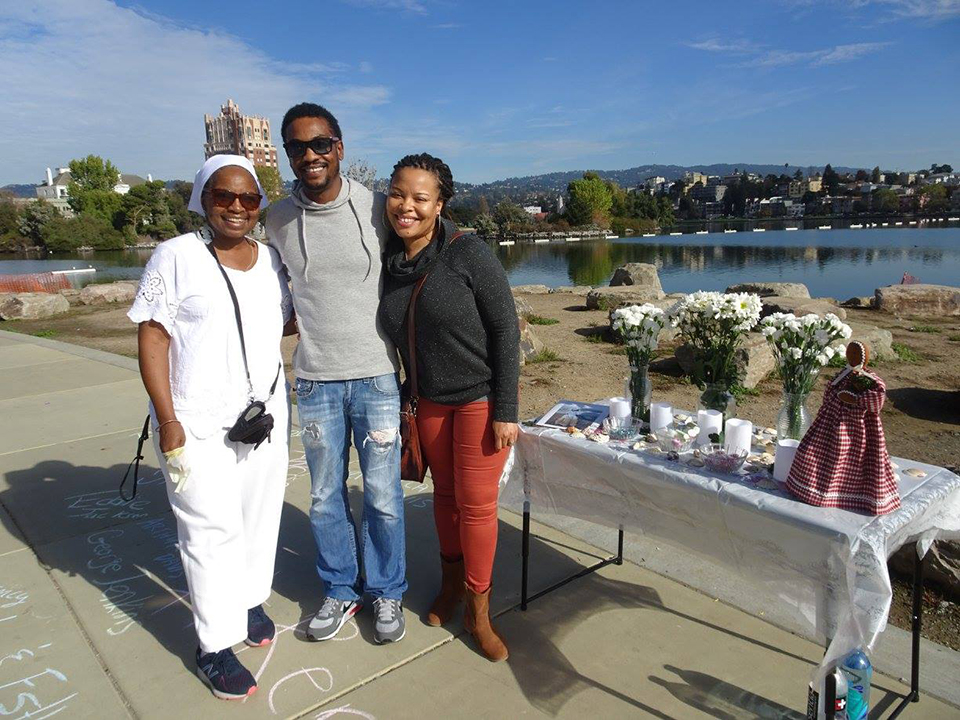
At Lake Merritt, near the Boathouse, we built a community altar for the ancestors and lots of people stopped to write their ancestors’ names on the pavement. We shared stories and hugs and laughter. It was really great. After we took the altar down, we put the flowers next to the names of Queen Mother Makinya Sibeko-Kouate and other Iyas who made their transition this year like Hajja Dhameera Ahmad, Sister Hadiah McCleod and Dr. Intisar Sharif. It was great seeing the children learning about family as they wrote their ancestors’ names. One little girl’s ancestor was the famous civil rights veteran, Ms. Daisy Bates, who integrated Central High in Little Rock, Arkansas. I asked people to tweet for the ancestors and many did once they finished writing their ancestors’ names.
We will definitely do this again. It was so funny; people asked if it was a fundraiser and were surprised when we said, “No,” that this was for the ancestors.
The altar had bubbles and peppermint candy for visitors to take and a photo of a sister on a beach in Salvador, Bahia (Brazil). The peppermint was to sweeten the bitterness of death, the bubbles were for Hajja Dhameera who loved the magic bubbles represent. We blew bubbles at her memorial.
One woman shared her sibling’s story. She was 5 when he died at 2 of Sudden Infant Death Syndrome (SIDS). She says when she breathes she thinks of him and as she walked that afternoon he was on her mind. Her brother was born in 1978.
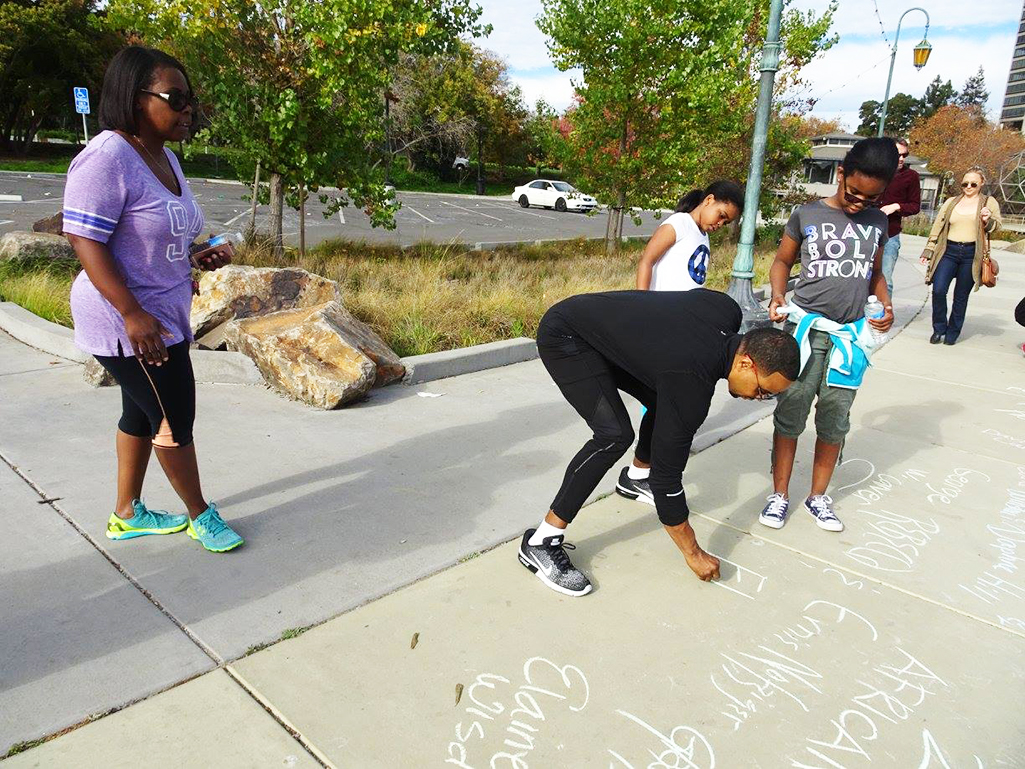
Ancestors guided the footsteps of many others who decided to walk or jog or cycle by the altar that afternoon. Another woman who started crying, said she wrote the name of her great grandfather who is the sole survivor of her family. He migrated here from Europe just before the Nazi-led killings began.
Given it was the day after Thanksgiving, families were off from work so moms and dads and grandparents were all together. It was great watching children and parents taking sides of the family to chronicle – paternal or maternal. One father’s grandmother had six or seven names and he knew them all. Her husband just had two (smile).
Some visitors wrote their ancestors’ names really big and bold with powerful strokes. I wondered about these ancestors’ energy and their legacy which was living on in their next of kin.
Two elder women said that we stood on the shoulders of our ancestors, so it is fitting to remember and call their names. I pointed to the website RemembertheAncestors.com for more information. By the time we concluded two and a half hours later, the space was a holy one. It was a memorial for all the ancestors whose names we’d called into the space.
At Lake Merritt, near the Boathouse, we built a community altar for the ancestors and lots of people stopped to write their ancestors’ names on the pavement. It was great seeing the children learning about family as they wrote their ancestors’ names. Some visitors wrote their ancestors’ names really big and bold with powerful strokes. I wondered about these ancestors’ energy and their legacy which was living on in their next of kin. By the time we concluded two and a half hours later, the space was a holy one.
Ava and I then went over to the rocks and poured libations to the ancestors including the ones evoked that day. We asked their blessings and presence. We asked them to help us to work out our difficulties, to help us stay strong and steadfast. We also asked them to be with our young people who died violent deaths and to help them move on. We also asked them to be with the youth who are locked behind bars – to be the hope in their despair, to give them answers to their questions and opportunities to change a bad situation into something positive until they are free once again.
From West Oakland to West Africa: A Transatlantic Conversation through Poetry
When my sister-friend Karla Brundage shared with me her master’s thesis project, to link Diaspora Africans to Continental West Africans via a Japanese poetic form, Renshi, I was intrigued. I have spent most of my life looking for a way to get home, home both ancestral and philosophical. Almost 10 years ago I set out to spend each New Year in an ancestral portal or geography as I continue to Map Diaspora. In 2017 I have not traveled outside the United States, but if the prison industrial complex is itself a country, then Graterford prison in Philadelphia is now a part of that terrain I call Diaspora.

But back to Karla and West Oakland to West Africa or WOWA, eight of us began meeting on Monday evenings at Mills College in September 2016. The plan was eight meetings, but the groove was so tight, we continued meeting, and Karla invited more poets to share the journey. These poets began meeting on Saturdays. Both groups conclude this second session in early December.
We responded to prompts and then sent our poems via email to our poet-pal in West Africa. I have had four poet pen-pals, two men and two women. My current poet pen-pal is in Tamale, Ghana. It is a town in the northern region that I visited last year. I stayed there for a week as I visited historic landmarks along the slave route. She is a high school teacher and mother of a small son. Celeste is fiery and fierce and writes about her ancestors and life before colonialism, a time when her culture was not presented through a Western sieve.
We are all pretty excited about the trip to Ghana next year in May to perform with our Ghanaian poet friends and make a few stops at historic places in Ghana, such as the DuBois Center in Accra and the two major slave dungeons. For many poets in the diverse group, this will be their first time in Africa. We have had poetry readings, have published a handcrafted chapbook, been guests on radio shows, including Wanda’s Picks. On Zakiyyah G.E. Capehart’s show on KPFA, Sir Black called in from Accra to share poetry.
Saturday, Dec. 9, 1-4 p.m., is our free Speakeasy Poetry Party: Get to Ghana Fundraiser at The Back Room, 1984 Bonita Ave., off University Avenue in Berkeley. People are encouraged to dress jazzy and come prepared to have fun. There will be wine, poetry and a silent auction. WOWA also has a GoFundMe Campaign (WO2WA) about to end.
Karla is a Fulbright Scholar, having spent a year in my favorite country, Zimbabwe. She taught there, while the classroom teacher there taught here. I remember thinking how cool that was for Karla to be able to not just trade high school classrooms, but to also be able to take her young daughter, now in graduate school, with her. Last year, Karla returned from West Africa after teaching there for about three years. A consummate poet, her mom also a dynamite writer, Karla, who was born in Berkeley yet raised in Hawaii, truly embodies the spirit of the Honorable Marcus Mosiah Garvey, who told us Africa is for Africans and that for those willing to put in the work, we could certainly “accomplish what we will.”
Wanda Sabir: Karla, could you please tell us about the genesis for WOWA?
Karla Brundage: The genesis for WO2WA, West Oakland to West Africa, happened in 2014 when I was living in Cote d’Ivoire, West Africa. At that time, I was teaching English at International Community School of Abidjan. As I have always been an advocate for student voice and hoped to be an agent for social change, I became involved in many groups in Abidjan and participated in the AISA Conference (Association of International Schools in Africa).
While there I met Sir Black, also known as Yibor Kojo Yibor, who was a co-founder of Ehalakasa and Talk Party, a monthly poetry slam in Ghana. While there, I participated in a slam and formed a connection with Sir Black. He eventually came to Abidjan and performed for my students. When he explained to me the connection between spoken word and the griot tradition, something he used to work with youth in Ghana, I was excited to try to collaborate. At first, I wanted to create a poetry slam between Abidjan and Ghana, but we were unable to create that link in that year due mainly to language difference of France and English.
When I came back to the states in 2015, I approached Youth Speaks with a proposal to create some kind of exchange with Ghana and American students. Again, the bureaucracy seemed too overwhelming. I returned to Abidjan and once again collaborated with Yibor. We applied to perform at the MASA Conference (Market for African Performing Arts).
When I returned to the U.S. for the final time, I applied to a Community Engagement Fellowship at Mills College with the hopes of creating a poetic exchange between my home town of Oakland and the greater Bay Area with people in Ghana and West Africa. As Community Engagement Fellow, I wrote a nine-week curriculum, which involved creating partner poets who exchange poetry for a period of nine weeks. Right now, we have 15 pairs of poets, totaling 30 participants. Each pair shares a poem each week with their partner poet. The themes change after each two-poem cycle. We use the form of Renshi poetry, which is a Japanese form in which the poet uses the last line from their partner’s poem to begin their poem.
WS: In your second year now, what are you doing differently with this new group?
KB: This year, we have added a number of poets from Abidjan, Cote d’Ivoire, and have created a few more themes which address cultural and political differences. I have also asked people from the original group to lead some of the writing workshops. The whole group will join together and all 15 of us will go to Ghana in May to meet our partner poets.
WS: Talk about some of the participants and their range of experience writing poetry.
KB: I have a range of poets from professional published poets who earn their living as artists to Mills graduate and undergraduate students. We also have members who are retired, so we are multigenerational. The group is composed of 11 women and two men. We also have a number of LGBTIQ participants. We have a diverse group geographically and ethnically, though the group does speak mainly to artists of color and African Americans in particular.
WS: You are a Fulbright scholar and you’ve taught and lived in South Africa and more recently West Africa for many years, and you also born in Berkeley but grew up in Hawaii. Tell us a little bit about your cultural history; you can start with your great grandfather at Tuskegee as a World War II pilot.
KB: Wow, yes, I have travelled a lot in Africa. I believe this is because of my family history. My mom, Dr. Kathryn Takara, is a well-known poet and publisher. She was a professor at University of Hawaii for 30 years but never received tenure. Our family has always fought discrimination within the university system starting with my grandparents, both of whom taught at Tuskegee Institute in the 1940s and ‘50s. My mother has travelled in China and to Niger.
After my daughter was born, I applied for a Fulbright Teaching Exchange and we spent a year in Zimbabwe. While there, my eyes were opened to the complex relationship I have with the continent of Africa as an African American. I have been processing this in my poetry ever since.
WS: If a person were to map your diaspora, what would it include? People, places? This is an extension of the previous question.
KB: My diaspora is African American. Aside from West Africa, I do not know geographically where my ancestors came from. My mom, who is African American, is also part Powhautin Indian, as that tribe was located in the Virginia area where my grandfather is from. My father is from upstate New York and is of Danish and German descent.
WS: The poetic form Renshi you’ve chosen for WOWA is indicative of the connection between West Oakland and West Africa: the ethnography connection as well as the ancestral connection. Talk a little bit about the philosophical lineage you are mining with WOWA, retracing the fractured route through poetry through this group of racially and culturally diverse poets.
KB: When I originally conceived of this project, I had youth in mind from Oakland Unified School District. As this demographic proved difficult to engage – I am still researching how to do this – I reached out to the Mills and greater Oakland community. My response was mainly from African American women. While I did not plan for any specific demographic, I adjusted accordingly. I was surprised by the range mostly in ages that this project called out to. Currently we have 13 participants – nine African American, two white, one Southeast Indian, one Cuban-Italian mix.
The form of Renshi poetry is meant to “link” the participants. The goal was to cross cultural divides between the U.S. and West Africa as well as to break stereotypes and form lasting and authentic friendships. I think poetry is a form to do this because poetry is really about two things, the heart and ideas. When people share ideas through poetry, they are also sharing their hearts. It is also a very intellectual sharing. This is not about “hooking up” or making donations. We are having intellectual discussions that cross borders with no political agenda.
WS: If you haven’t already shared your immediate hopes for the project, please do.
KB: I hope that this project can grow. I am still looking to partner with other youth organizations. I would like to include and reach out to more African American men and boys. We will be going to Ghana in May to meet our partners. I hope that this will be a life changing experience for all of us. Eventually we will publish a book.
WS: Does this mirror your partner’s hopes? What is the report on the ground in Accra, Abidjan?
KB: My partner and I have co-created this project, with me as the visionary and he as the support. I think he would hope that if this continues, I could pay him. Also perhaps we could create a more equitable exchange and try to bring some Ghanaian poets here, but all of this takes money. We are mostly funding this from GoFundMe, a grant from the City of Oakland Cultural Funding Program, but we are in no way making the kind of money that would allow me to fly people here. I also do not have the institutional support to help people with visas.
WS: Lastly, how can people help through the May departure? Can people sponsor poets, pay for group lodging?
KB: Yes, people can sponsor us. Please like our Facebook page, https://www.facebook.com/WO2WA/, and watch for our upcoming events. We also have a Get to Ghana Speakeasy Poetry Party and Open Mic at The Backroom in Berkeley, 1984 Bonita, Dec. 9, 1-4 p.m., featuring the 15 WOWA poets: Shoshana Moed, Tyrice Brown, Rucha Chitnis, Adeshima aka Marcus Lorenzo Penn, Xiomara Hooker, Wild-Flower Brashear, Mimi Gonzalez-Barillas, Wanda Sabir, Zakiyyah G.E. Capehart, Sara Biel, Karla Brundage, Makeda aka Sandra Hooper Mayfield, Imani Todd and Audacious IAM.
Nicolas Bearde and Friends Celebrating the Season
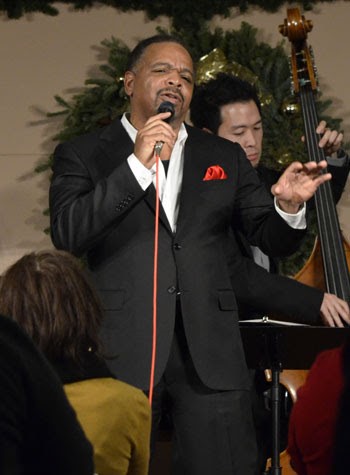
Now celebrating its 11th anniversary, this special concert with Nicolas Bearde and Friends is a “must see” show for all fans of contemporary Jazz and Blues. Joining Bearde on stage are some of the Bay Area’s best: John R Burr (piano), Ron Belcher (bass) and Leon Joyce Jr. (drums). The solo performance is Saturday, Dec. 9, at 8 p.m. at Piedmont Piano Company, 1728 San Pablo Ave. at 18th, Oakland. Tickets are $25 in advance or $30 at the door. A meet & greet and reception follows. To reserve tickets, call 510-547-8188.
‘Cinderella’ at African American Shakes
African American Shakespeare Company’s “Cinderella” runs Dec. 22-24 and is directed by Sherri Young. The wonderful holiday favorite is once again at the Herbst Theatre, 401 Van Ness Ave., San Francisco. Free Teacher’s Night Out is Dec. 21, 8 p.m. Register in advance: african-americanshakes.org/education/teachers-night-out/. For tickets, call City Box Office, 415-392-4400. Youth under 18 and seniors 65 or over: $25.
Lorraine Hansberry’s ‘Soulful Christmas’
Lift your spirits with Lorraine Hansberry Theatre’s 2017 “Soulful Christmas: A Gospel Holiday Concert” presented at San Francisco’s Buriel Clay Theater, 762 Fulton St. near Webster in San Francisco Dec. 14-23. For tickets visit lhtsf.org or call 415-474-8800.
Gospel solo artist Yvonne Cobbs directs the legendary Lorraine Hansberry Gospel Choir with inspirational holiday music both old and new, sacred and secular. The show is guaranteed to be a roof-raising, hand-clapping, joyful good time for all ages. Though I miss “Black Nativity” and I hope LHT will bring it back one day, this concert is really beautiful. Ms. Cobbs is a superb musical director and the LHT Ensemble is stellar. Everyone is a constellation. The stage glows.
‘Let Us Break Bread Together’
Oakland East Bay Symphony presents “Let Us Break Bread Together,” a holiday concert featuring the music of Prince and Leonard Cohen, Sunday, Dec. 10, 2 p.m., at the Paramount Theatre, Oakland. For tickets and information, call 510-444-0802. Under 18? Just $15. Tickets start at $25.
‘Jazzy Nutcracker’ and ‘Go Tell It: A Harriet Tubman Christmas Story’
Lyric Performing Arts Academy presents “The Jazzy Nutcracker,” featuring Duke Ellington’s “Nutcracker Suite,” at Fremont High School Auditorium, 4610 Foothill Blvd., Oakland, Saturday, Dec. 9, 1 p.m. Tickets are $10 adults, $5 children and seniors. Later that afternoon and the following weekend, guests can see “Go Tell It: A Harriet Tubman Christmas Story” on Dec. 9 at 4 p.m. and on Dec. 16 at 2 p.m. and 6 p.m. Tickets are $20 for adults; $10 children and seniors. Visit GoTellIt.info.
Digital Storytelling Festival at West Oakland Branch Library
On Saturday, Dec. 9, 2-4 p.m., join us to see digital films of your neighbors and community members! These films are the creations of a two-day workshop here at the West Oakland Library. The films are 2-4 minutes long. The WOBL is located at 1801 Adeline St., Oakland. It is a free event. There will be popcorn.
Kitka ‘Evening Star’
“Even God stops to listen when Kitka opens its collective mouth,” wrote Summer Burke in the Bay Guardian. The women’s vocal ensemble Kitka presents “Evening Star,” the latest in a series of “Wintersongs” CD Release Concerts in Oakland, Friday, Dec. 15, 8 p.m., at St. Paul’s Church; Sunday, Dec. 17, 5 p.m., Nile Hall, Preservation Park, Oakland. See www.kitka.org or call 510-444-0323.
Oakland Public Conservatory of Music is BACK!
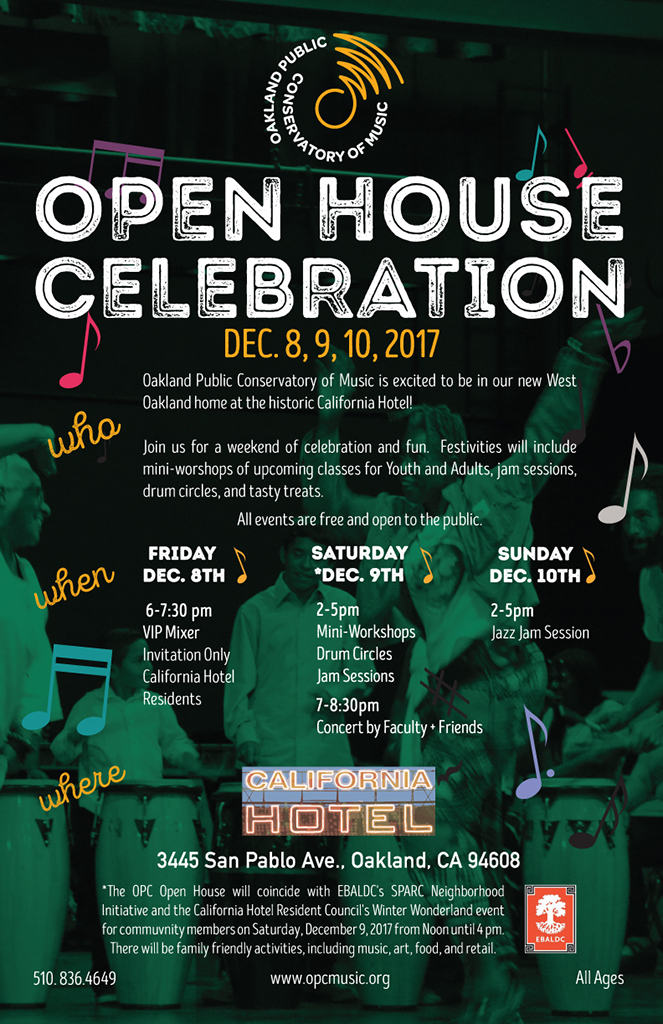
Oakland Public Conservatory of Music is BACK! on the block, anchor tenant in the newly restored historic California Hotel, where Oakland and Emeryville meet. The opening celebrations coincide with other celebratory happenings throughout the hotel complex which patrons will not want to miss, Dec. 8-10, 3445 San Pablo Ave. Small bites, munchies and beverages will be served.
Adults and youth can sample classes: Zimbabwean-style marimbas, Beginning Band for Adults, Piano Class, Guitar, Afro Cuban Percussion, Jazz Improvisation and more. We’ll also be offering classes for parents and their tots! For the schedule, visit https://www.opcmusic.org/Events.php.
The public programs are Saturday, Dec. 9, 1- 5 p.m., and Saturday evening 7-8:30 p.m. Sunday, Dec. 10, 2-5 p.m., is the Jazz Jam Session. Register for classes Saturday 1-5 p.m. For more information, call 510-836-4649 or email info@opcmusic.org.
EastSide Holiday Fair
Saturday, Dec. 2, 12-5 p.m., EastSide Arts presents its Holiday Book and Art Fair, 2277 International Blvd. This is a free event.
Sovoso Concert
Sovoso will perform at Freight and Salvage, 2020 Addison St., Berkeley, Monday, Dec. 18, 8 p.m.
Ashkenaz Music and Dance Center events
Friday, Dec. 1, Music of Southern Africa: Chinyakare and Zulu Spear, 9:00-11:59 p.m. Tickets are $15 in advance and $20 at the door. Shows are always all ages at Ashkenaz, 1317 San Pablo Ave., Berkeley.
Wednesday, Dec.. 6, Yissy and Bandancha, Contemporary Cuban. Doors open at 7:30 p.m.; Show at 8 p.m. Tickets are $18 in advance, $20 at the door.
Drum Sundays are drumming workshops presented on the first Sunday of every month by one of the fantastic maestra drummers from Born to Drum. This month, Dec. 3, 1-3 p.m., the workshop leader is Debbie Fier, Middle Eastern Rhythms and Percussion. Classes are open to all levels. There will be a limited number of drums to borrow on a first come first serve basis. Tickets are $25-$10 sliding scale, under 12 free. No one turned away for lack of funds. The class is in the back studio.
Global Cultures for Kids presents Dimensions Dance Theater, Sunday, Dec. 10, 4-5:30 p.m. Advance tickets are $12 adults, $8 kids in advance, at the door $15 and $10. Bring a family of four for $35.
Regina’s Touch-Benefit for US Virgin Islands Children’s Fund
On Sunday, Dec. 3, 7-9:30 p.m., Regina Wells – Rashida Oji – a full-hearted singer whose voice and presence touches people deeply, will present a benefit concert for the Virgin Islands Children’s Fund. She has been singing all of her life, from her youth leading Catholic folk masses to venues large and small around the USA. She has shared the stage with Linda Tillery, Carolyn Brandy, Edwina Lee Tyler, Santana, rhiannon, Bobby McFerrin, Melanie DeMore, Toshi Reagon and her own band Rashida Oji and Middle Passage – and Ojala’. Iya Regina is joined by Michaelle Gorlitz, drums, Charlene Gumbs of “Sistahs of the Drum,” bassist Lillie Robinson and sound healer “Madhu Sahu” Anziani. Tickets are $15.
Global Women’s Strike and Haiti Emergency Relief Fundraiser in Memory of Lori Nairne
You are invited to join some of the Bay Area’s most dedicated activists on Saturday, Dec. 9, 6-11:30 p.m., at OMNI Commons, 4799 Shattuck Ave., Oakland.
Two Shows at Joyce Gordon Gallery
While the Seventh Annual Holiday Show is in full swing, don’t miss Martin Grizzell’s “Lukasa: Post-Modern Variations of Coded Quilts,” Dec. 1-31, at Joyce Gordon Gallery, 406 14th St., Oakland, 12th Street BART. Visit www.joycegordongallery.com or call 510-465-8928. The opening reception is Friday, Dec. 1, 6-9 p.m. Gallery hours are Wednesday-Friday, 11-5, Saturday 1-5.
Grizzell’s exhibition explores the African origins of the Underground Railroad coded in quilts. “Lukasa” is inspired by the late Mrs. Ozella McDaniel Williams’ Quilt Code.
‘Art Speaks Truth to Power’ Exhibit
The Art Speaks Truth to Power Exhibit at Oakland City Hall in the thirrd floor Rotunda Space is up Dec. 1-31. Rev. Daniel Buford, executive director of Berkeley Organizing Congregations for Action (BOCA), showcases his work. His sculptures are all handcrafted out of wood, featuring redwood relief carvings named after the biblical prophets.
Pre-New Year’s Bash: The Dynamic Miss Faye Carol at SFJazz
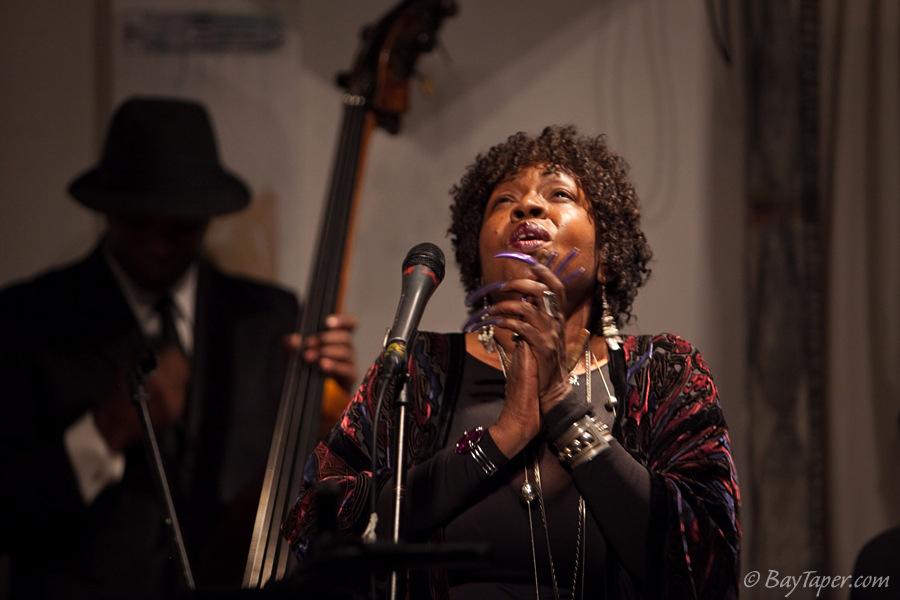
Miss Faye Carol and pianist Joe Warner will perform Saturday, Dec. 30, shows at 7 and 9 p.m., 201 Franklin St, San Francisco. For information, call 866-920-5299. The show is for all ages and is ADA accessible. Tickets are $40, online or at the door. Visit fayecarol.com.
Bay View Arts Editor Wanda Sabir can be reached at wanda@wandaspicks.com. Visit her website at www.wandaspicks.com throughout the month for updates to Wanda’s Picks, her blog, photos and Wanda’s Picks Radio. Her shows are streamed live Wednesdays at 7 a.m. and Fridays at 8 a.m., can be heard by phone at 347-237-4610 and are archived at http://www.blogtalkradio.com/wandas-picks.






